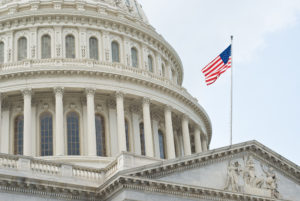A Texas judge temporarily blocked the Department of Labor’s proposed overtime rules in a recently-issued order. The order, issued out of the Federal District Court for the Eastern District of Texas (my backyard), granted an emergency request for a nationwide preliminary injunction against the enforcement of the new rules. The plaintiffs challenging the legality of the rules—a group of 21 states led by Texas and Nevada and more than 50 Texas business organizations headed up by the Plano Chamber of Commerce—demonstrated “a substantial likelihood of success,” the standard necessary for the court to grant the injunctive relief requested under Federal Rule of Civil Procedure 65(d).
Under the Fair Labor Standards Act (“FLSA”), employees engaged in commerce must receive at least the federal minimum wage (currently, $7.25 per hour) for the hours that they work. Employees are also entitled to receive overtime pay at one and one-half times their regular rate of pay for each hour that they work above forty in a week. The FLSA, however, contains a number of exemptions from the overtime rule. For instance, under what is commonly referred to as the “white collar” exemption, “any employee employed in a bona fide executive, administrative, or professional capacity” may be exempted from the FLSA’s minimum wage and overtime requirements.
To meet the white-collar exemption, an employee must satisfy three criteria:
- The employee must be paid on a salary basis (the “salary-basis test”).
- The employee must be paid at least the minimum salary level established by the regulations (the “salary-level test”). The current minimum salary level is $455 per week ($23,660 annually).
- The employee must perform executive, administrative, or professional duties (the “duties test”).
The new DOL rules, which would have been effective December 1, 2016, would increase the minimum salary level for exempt employees from $455 per week ($23,660 annually) to $921 per week ($47,892 annually), substantially increasing the number of employees entitled to time-and-a-half overtime payments and significantly raising costs for employers—estimates showed that nearly half of small businesses would be affected.
The court’s ruling is a temporary measure; litigation will continue until a final ruling is issued. Of course, absent some expedited measures, there is not likely to be a final ruling prior to president-elect Trump taking office. It seems quite possible that a Trump-led administration may simply drop the litigation, leaving the new rules to die on the vine.

